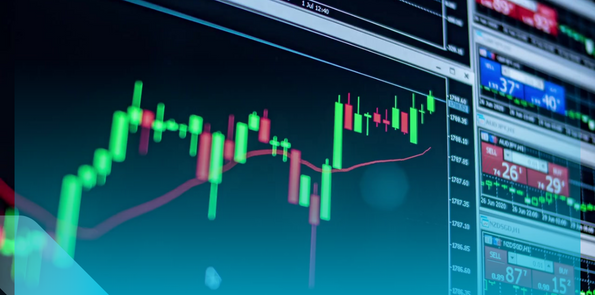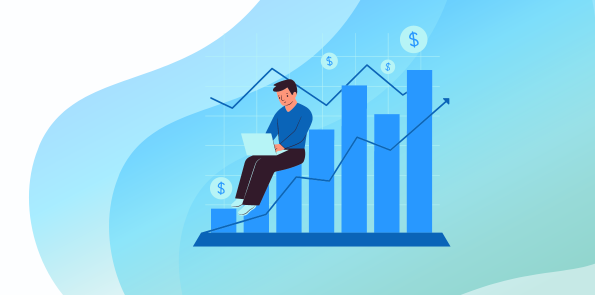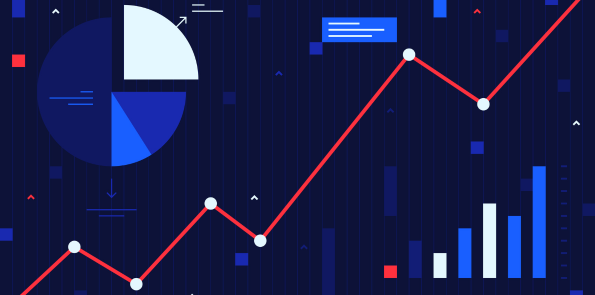Forex Trading 101: A Beginner's Guide to Currency Markets

Дослідження ринку
Forex Trading 101: A Beginner's Guide to Currency Markets
What is Forex Trading?
Forex trading, also known as foreign exchange trading or currency trading, is the buying and selling of different currencies in the global market. The forex market is the largest and most liquid financial market in the world, with an average daily trading volume exceeding $5 trillion.
Unlike other financial markets, such as the stock market, forex trading does not have a central exchange. Instead, it operates over-the-counter (OTC), which means that transactions are conducted electronically between participants through computer networks around the globe.
How Does Forex Trading Work?
In forex trading, traders speculate on the price movements of currencies. The objective is to buy a currency when its value is expected to rise against another currency and sell it when its value is expected to fall. This process allows traders to profit from fluctuations in exchange rates.
Currencies are always traded in pairs, such as EUR/USD (Euro/US Dollar) or GBP/JPY (British Pound/Japanese Yen). The first currency in the pair is called the base currency, and the second currency is called the quote currency. The exchange rate represents the value of the base currency relative to the quote currency.
For example, if the EUR/USD exchange rate is 1.10, it means that 1 Euro can be exchanged for 1.10 US Dollars. If a trader believes that the Euro will strengthen against the US Dollar, they would buy the EUR/USD pair. If their prediction is correct and the exchange rate increases to 1.20, they can sell the pair and make a profit.
Key Participants in the Forex Market
Several key participants are actively involved in the forex market:
1. Banks and Financial Institutions:
Central banks, commercial banks, and other financial institutions are the largest players in the forex market. They facilitate foreign exchange transactions for their clients, including businesses, governments, and individual traders.
2. Institutional Investors:
Institutional investors, such as pension funds, hedge funds, and mutual funds, trade forex to diversify their portfolios and generate potential returns. Due to their large trading volumes, institutional investors can significantly impact currency prices.
3. Retail Traders:
Individual traders, often referred to as retail traders, play a crucial role in the forex market. With the advancement of technology and online trading platforms, anyone can access the forex market and trade currencies from the comfort of their own home.
Basic Forex Trading Concepts
1. Leverage:
Leverage allows traders to control larger positions in the market with a smaller amount of capital. It is expressed as a ratio, such as 1:100 or 1:500. For example, with a leverage of 1:100, a trader can control $10,000 worth of positions with only $100 of their own capital.
While leverage can amplify profits, it also increases the risk of losses. Traders should use leverage wisely and consider their risk tolerance and trading strategy before utilizing it.
2. Margin:
Margin is the amount of money required to open a position in the forex market. It is a collateral or deposit that traders must maintain in their trading accounts to cover potential losses. Margin is typically expressed as a percentage of the total position size.
For example, if a broker requires a 2% margin, a trader must have $2,000 in their account to open a position worth $100,000. Margin requirements vary between brokers and can also be impacted by the size of the position or the currency pair being traded.
3. Pips:
In forex trading, price movements are measured in pips, which stands for "percentage in point." A pip represents the smallest incremental movement in the exchange rate for a currency pair. Most currency pairs are quoted with four or five decimal places, with the last digit being a pip.
For example, if the EUR/USD exchange rate changes from 1.1000 to 1.1001, it means that it has moved by one pip. Pip movements are used to calculate profits and losses in forex trading.
Getting Started with Forex Trading
If you're a beginner interested in forex trading, here are some essential steps to get started:
1. Educate Yourself:
Before diving into the forex market, it's crucial to educate yourself about the basics of forex trading. Familiarize yourself with terms, concepts, and strategies used in forex trading. There are numerous online resources, e-books, and courses available to help you learn.
2. Choose a Reputable Broker:
Selecting the right forex broker is essential for your trading journey. Consider factors such as regulation, trading platforms, customer support, fees, and available account types. It's recommended to choose a broker with a good reputation and excellent customer reviews.
3. Open a Demo Account:
Most reputable brokers offer demo accounts where you can practice trading without risking real money. Utilize the demo account to familiarize yourself with the trading platform, test different strategies, and gain practical experience before trading with real funds.
4. Develop a Trading Plan:
A trading plan outlines your trading goals, risk tolerance, and strategies. It helps you stay disciplined and organized in your trading activities. Define your entry and exit points, risk management techniques, and position sizing rules.
5. Start with Small Positions:
When you're ready to trade with real money, start with small positions to manage risk effectively. As you gain experience and confidence, you can gradually increase your position sizes. Remember to never risk more than you can afford to lose.
6. Monitor and Analyze:
Keep track of the forex market and analyze price movements using technical and fundamental analysis. Utilize tools such as charts, indicators, and economic calendars to identify potential trading opportunities.
7. Constantly Learn and Adapt:
Forex trading is a continuous learning process. Stay updated with market news, economic events, and changes in market conditions. Adapt your strategies as needed and always be open to new learning opportunities.
Conclusion
Forex trading provides individuals with opportunities to participate in the dynamic world of currency markets. As a beginner, it's essential to understand the basics of forex trading, including concepts like leverage, margin, and pips. By educating yourself, choosing a reputable broker, and developing a trading plan, you can lay a solid foundation for your forex trading journey. Remember to start with caution, practice, and always strive to improve your trading skills.



